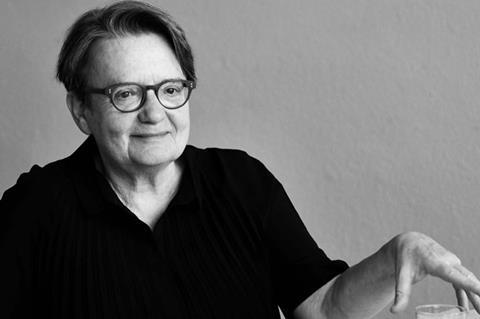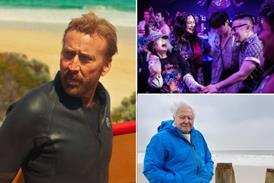Speaking at her masterclass at International Film Festival Rotterdam this weekend, Agnieszka Holland has expressed her dismay at what she calls the lack of “cultural identity” in contemporary mainstream cinema.

“Cinema became as boring as life,” Holland said of films being made in what she referred to as an era of “consumption and new technologies”, when the majority of filmmakers don’t have “a significant human or historical experience to discuss.”
The prolific Holland (whose latest feature Mr Jones premieres in competition at the Berlinale next month and who is also preparing an epic new TV drama series about Napoleon) was addressing a packed audience in Rotterdam’s Hilton’s Hotel.
“Cinema, much like music, divided itself into two opposing camps: sophisticated, ambitious and challenging art house cinema and popular, artistically lukewarm entertainment dominated by unambitious comedies and Hollywood superhero flicks overflowing with special effects, family friendly animation or romantic comedies,” she said. “I think frankly the cinema is less exciting right now.”
In the 1970s and 80s, the veteran Polish director reminded the audience, US directors like Francis Ford Coppola, Martin Scorsese and Hal Ashby were making “gritty, socially engaged films” that managed to attract mainstream audiences.
Politics and ideology
In a wide ranging speech, Holland also touched on such issues as climate change and the “crisis of faith” in liberal democracy and human ideas. She also discussed the internet revolution.
“We have found ourselves in a new dangerous place, both of the human race and as a planet. During the upcoming decades, anything can happen, even the worst scenarios. Sometimes, it feels like we found ourselves on the Titanic,” the director warned. However, she also argued that the current political turmoil should open up new opportunities for storytellers and filmmakers “to step out of our comfort zone and to look at reality and ourselves from a fresh perspective.”
Holland, 70, directed several episodes of Netflix series House Of Cards at the time that Donald Trump was matching toward the US presidency. Nothing in the fictional series, she said, matched the “grotesque populism” of the Trump campaign. She cited descriptions of Trump as “a real life fictional character.”
“Look at Duarte (in the Philippines) or Trump. They are exactly like the characters from a TV series. They are bigger than life. They are fictional…they stole our reality somehow. I was shooting House Of Cards season five exactly at the moment of Trump’s election. It was absurd. We didn’t know what to do. Suddenly, the reality was much more bizarre and unbelievable than all the fiction invented by all the screenwriters.”
Childhood
The director also spoke of her childhood in the “ruins of Warsaw” after the war.
“I wore the stigma of the trauma experienced by my Jewish father, a communist who at the beginning of the war escaped to Soviet Russia and fought there, unaware of the fact that he lost his whole family in the Shoah. He never spoke about it,” Holland recalled.
Her father “lost faith” in his communist ideals. Aged 41, after being arrested by the authorities and harassed by communist officials during court hearings, he committed suicide. Holland was seven years old at the time.
She spoke of how she first dreamed of becoming a filmmaker as a 15-year-old when growing up in communist era Poland. She became exposed to work by the “New Waves” revitalising cinema in the UK, Czech Republic and Poland in the early 1960s and was inspired by the idealism of the Prague spring.
“Life under real communism was threatening but at the same time seemed somehow familiar. Since the mid 1950s, the system had become less unmerciful and had ceased to be the cruel machinery led by Stalin. The people in power were cynical officials who mostly just cared about their own comforts,” Holland said of the 1970s, when she began to establish herself as a director.
At the time, Polish cinema had two de facto leaders: Andrzej Wajda and Krzysztof Zanussi. Filmmakers found ingenious way of “tricking” the censors. Then came Martial Law, the Solidarity struggles and the period when she became “a political immigrant” and began to work outside eastern Europe.
Since then, Holland has worked all over the world. Her extraordinary range of credits include award winning films in Hollywood and Europe, such TV dramas as The Burning Bush and the first original Polish Netflix series, 1983, a dystopian drama set in a world which images the Iron Curtain never fell. She also directed episodes of The Wire and Treme.


































No comments yet